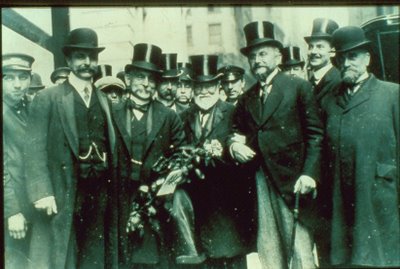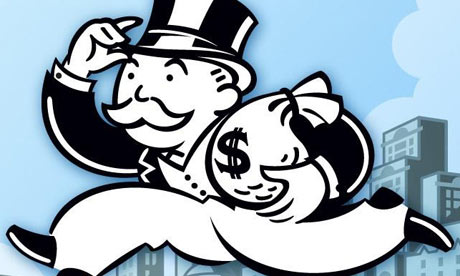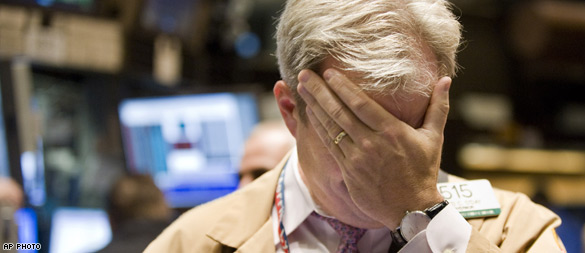
In the wake of the Senate’s 59-39 passage of financial reform last week (not to mention increasing evidence of rampant and pervasive fraud at Goldman, Morgan, and elsewhere), New York‘s John Heilemann surveys the bruised egos of Wall Street’s would-be robber barons. (In very related news, Paul Krugman and the WP note that Wall Street is now betting heavily on the GOP again.)
Keep in mind: Wall Street is angry with the administration despite the fact that “Geithner’s team spent much of its time during the debate over the Senate bill helping…kill off or modify amendments being offered by more-progressive Democrats.” [Change we can believe in!] Heilemann writes: “Whatever the effects of the bill, among them will be neither an end to the too-big-too-fail doctrine nor any curb on what the sharpest Wall Streeters see as the central threat to the system’s stability: excessive financial leverage. Geithner, Summers, and Obama had little interest in tackling those matters, not because they are indentured servants to Wall Street but because at heart they are all technocrats who believe the system doesn’t need to be rebooted or downsized, merely better supervised.“
Still, on the bright side and despite the ambivalence (or open opposition) from folks in high places, this bill did get significantly stronger on the Senate floor, and in some ways is now stronger than the House version passed last year. Let’s hope this welcome progressive trend continues in conference.


